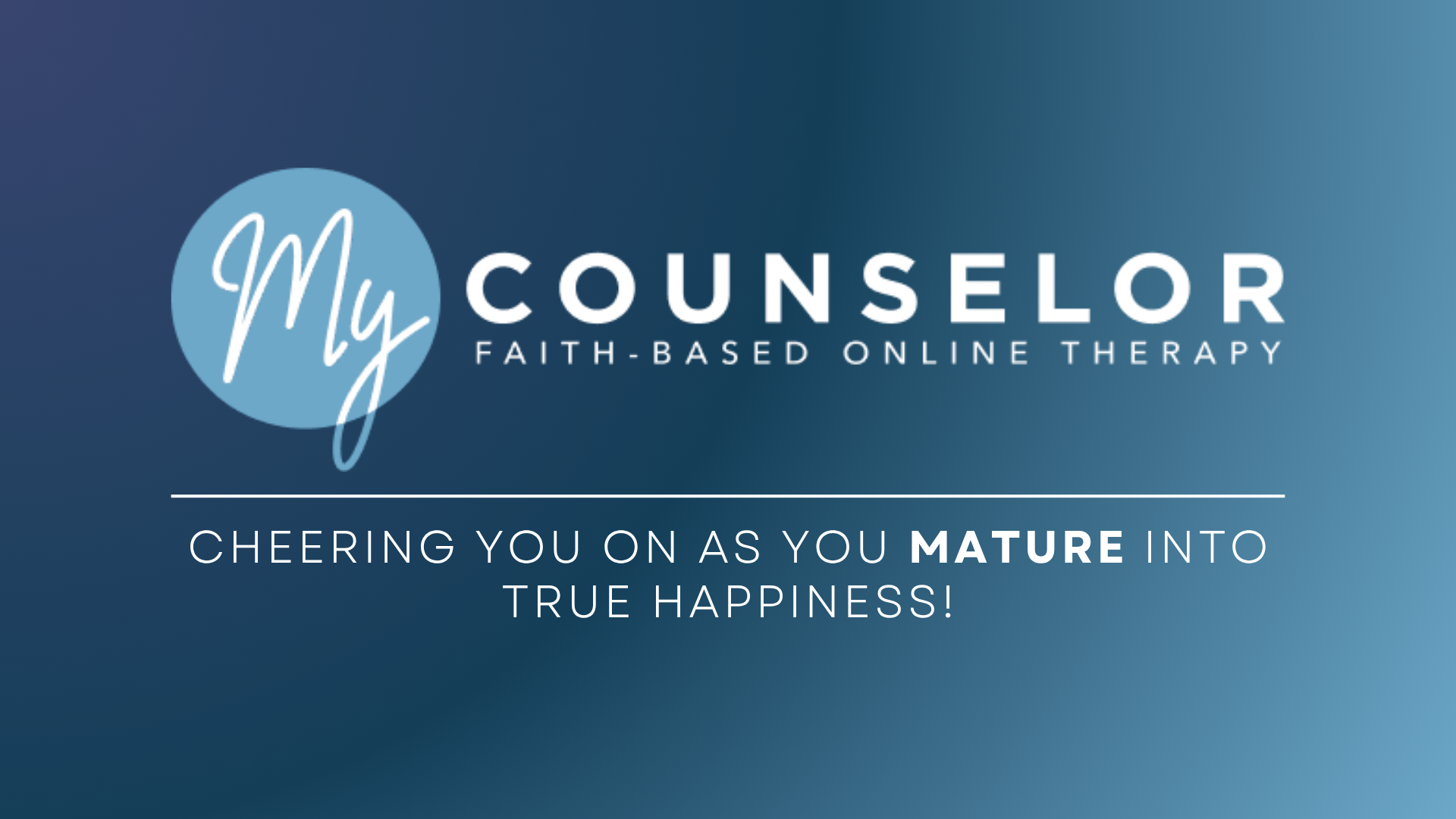Misplaced Identity: It’s Not Your Calling
This article is based on scientific evidence and clinical experience, written by a licensed professional and fact-checked by experts.
Posted: April 15, 2022
Estimated reading time: 6 minutes
In This article

“Tell me about yourself”….one of the most commonly asked questions for any interview or introduction. And yet, that’s a tough question no matter how much you prepare for it! I remember how my younger self would have answered… “A single Christian female, oldest child from a broken home, called to the ministry, retail worker, studying clinical psychology, Magna Cum Laude graduate, and Psychology Student of the Year, who had long blonde hair, sang on the church worship team, participated in local theater, and could make a mean Chocolate Ganache cake for any gathering”. To most people or employers, I probably seemed like a young lady who was sure of her identity. I covered all the bases with how I saw myself, what I liked to do, what I had achieved, and what I was called to do. After all, isn’t that what identity is all about? Or is it possible that I had identity and calling confused?
Where Is the Pressure Coming From?
It’s no secret that people are on a constant search to discover “who they are.” The proverbial caterpillar closing up inside a cocoon and emerging as a butterfly. For young adults, this pressure to discover who you are, and who you are going to be, seems to be at its peak, particularly with decisions relating to higher education and career choices. Developmental Psychologist, Erik Erikson, coined adolescence as the fifth stage in human development, referring to it as the “Identity vs Role Confusion” stage. Not only is the deadline approaching to decide what you want to be when you grow up, but in this stage of life, he found that your brain begins trying to build a sense of what your identity is and where you belong.
The brain releases chemicals, like dopamine, that tell the body to do more of something that feels rewarding. When a person begins to experience praise, affirmations, rewards, and connection with a line of work they’re invested in, that provides a release of all the chemicals that tell the body to do more of that – this feels right!
It makes sense, then, that all those angsty teens gravitate towards whatever “calling” feels good at giving them a place to belong in this big world. Coming up in the church during my adolescent years, I found peace knowing that God had a “calling” on my life. That seemed to make life feel simpler, when the adolescent life is FAR from simple. Remember, I was a single, blonde haired, dessert-baking, academically driven, christian girl. My brain was eating up all the accolades and compliments I was getting for what I did and how people responded to me. I felt safe and whole in having a “calling” from God to the ministry and in my talents. I was naively confident in that identity….until all of those labels and achievements began getting stripped away with experiences of failure, competition, hair changes, relationship shifts, burnout, and many job changes. Suddenly, I began to realize that if the foundation of my identity could crumble that easily, then it was built on the wrong things to begin with.
The Difference Between Identity and Calling
Looking at the definitions of both identity and calling can help us differentiate who we are from what we do.
Dictionary.com defines identity as, “the state or fact of remaining the same one or ones, as under varying aspects or conditions-the condition of being oneself or itself; and not another.” Another way it is defined is by “the qualities, beliefs, etc. that distinguish or identify a person or thing.” When we break that meaning down, one can see that the identity of a person is stable and unchanging- across any circumstance or time frame.
Our identity is actually comprised of attributes that deepen and develop through experiences; there is no shelf life on those attributes. Your character traits were placed inside you, modeled after the image of God. Just like you inherit brown eyes and broad shoulders from your parent’s genes, you inherit things like love, perseverance, creativity, intellect, and self-control from God’s character. And in fact, those attributes are like the proverbial “wind beneath the wings.” Not only do your qualities make you Who you are, but they are actually the traits that allow you to Do the work parts of your life so well.
Calling, on the other hand, is defined as “a strong urge toward a particular way of life or career; the vocation or profession in which one customarily engages”. Calling and vocation are centered around a person’s progress or general course of action throughout different phases of life.
Whatever you are rooted in will impact how you behave. Being rooted in career efforts actually leads you away from your calling and redirects attention and effort towards trying to achieve recognition and approval from God and man. Being rooted in your relationship as a child of God will allow your calling to naturally flow out of that space of who you are, and direct you towards a fulfilling vocational path.
In sum, calling is defined by effort and shifting, whereas identity is constant and effortless.
The Benefits
You may be wondering, “Why do I need to know the difference between identity and calling?” Having knowledge of these differences is not only powerful, but it is key in guiding you towards a more confident view of yourself; one that will provide you with a wealth of resources for living a more authentic life. Here are a few benefits to differentiating your identity from your calling:
You can recognize and embrace seasons of transition without fear. Let’s be honest, no one likes change. Yet our “calling” involves constant change. Our vocations all take much work; sometimes even blood, sweat, and tears. But who maintains one job or fulfills one role for their entire life? No one. Your vocation will always end with a transition to a new role, a new job, a new vision, a new career, etc. Even the role of the parent transitions throughout the lifespan and forces a change, hence the “empty nest syndrome.”
“The way God chooses to use us in the world shifts and changes with the seasons of life, and also with the day-to-day. That means what our calling looks like, is reliably inconsistent. If you try to build your identity on that, then when the season transitions (not if), you will feel vulnerable, emotionally unstable, some may even describe it as feeling unraveled and doubtful of who you are without that role. “
Instead, embrace your identity throughout the change in seasons of your work, trusting that God qualified you by what He put inside of you before you ever were born. You have all the attributes that it takes for the changing situation within your true identity in Christ, so knowing the difference allows you to embrace the flexibility and potential of who you are no matter what hand you’re dealt in life.
You have the opportunity to live life with less self-induced pressure and limitations. In the church, there is so much emphasis on calling, because we are passionate and eager to give back to God’s Kingdom. But your spiritual calling functions beyond the box of five-fold ministry (Apostle, prophet, evangelist, pastor, teacher).
I remember being so confused and lost about how to serve God in my calling if it wasn’t through bible school training, working on staff in a church building, or traveling for missions work. I’m so grateful I saw His redirection opening up my future in the field of human services and psychology. That has looked so different over the years and not always within the role as a therapist or in a publicly Christian office, but still demonstrating God’s love.
God does intend for many of us to help touch people’s lives through those offices of five-fold ministry, and they are highly valued and an integral part of God’s church. But if it becomes the focus of what you think you were designed for, you may miss all of the day-to-day opportunities that God is offering you to be a part of His kingdom work. That’s your calling – to live like Christ…and you’re made in His image.
Jesus was many things in His different seasons on Earth- a son, a student, a prophet, a teacher, a carpenter, a physician, a king, a friend, our Savior. He had many roles, and within them, he always lived with integrity and authenticity to model who Father God is to us and in us. He was able to be flexible, because being a child of God is about more than the achievements.
Attachment studies are strongly favored throughout the field of mental health, because the attachments people develop from infancy throughout their life will directly impact the health of self-image and relationships. Insecure forms of attachment style in children and adults present themselves through insecurities and an inability to soothe or regulate oneself when the attachment figure leaves.
One could relate the relationship between identity and calling to an insecure attachment bond, due to the fact that one’s work life changes and life morphs so often, leaving a person feeling distressed and insecure. However, those that can deepen their understanding of identity as a child of God, are blessed with the benefits of a secure attachment to the most stable factor in the universe – God the Father and our Creator! Secure attachment provides confidence, a strong self-image, increased ability to smoothly regulate disrupted emotions, and safety. Despite job changes, life transitions, relationship challenges, or image issues, a secure attachment to God helps us lean into the security of who He is and who we were made to be through any season of our life.
By understanding your true identity, you can also prevent burnout. I work with many people who come to me when they’re at the point of running themselves into the ground for the sake of what they think God made them for. I see their families falling apart, panic attacks, imposter syndromes, depression and fear of failure at work, and more. Sadly, many of these people burning out are ministry workers – unconsciously acting as martyrs for the Lord’s cause, feeling no freedom to set healthy boundaries or prioritize self care.
“That’s just what you do in ministry, you work selflessly,” a type of phrase I heard often during a season of Christian non-profit work. I can usually recognize when a person’s burnout is coming from an identity crisis, because when we start to replace some of their work priorities with self-care measures and deeper perspectives, the boxing gloves come out to protect those inner layers of what they do to be seen as a certain way.
When people feel that protective of the work they do and how it defines them, as if no one else could do it or that they’d be letting someone down (maybe God down), then it’s a pretty clear sign that it’s become a part of who they are…misplaced identity, and they don’t think they can afford to change it now.
It can be terrifying to pull down the layers of what you do and how that has formed your self-image. You may be afraid that you don’t know the person inside, questioning whether you will like them, and what people will think of them after seeing the other image for so long. All the more reason to care for yourself as a child of God, not an employee of God, and learn what He sees in you for who you are, not for what you can do.
In that process, take after Jesus: when He was exhausted and needed to avoid the crowds and the work, he rested. Give yourself some TLC rather than working yourself like a martyr, and talk to someone who can help you carefully look under the layers of all the burnt up work to find the human being inside.
Solid Identity
We live in a fallen, messy world that has lots of distractions to fill and layer on over our lives. It makes sense that you would feel confused or pressured to define yourself by what you can achieve, rather than simply by who you are inside.
After all, we’ve already established that most career coaches will teach you that the best answers to the question, “Tell me about yourself” should involve facts and statistics of your achievements rather than your personality traits. Sure, there’s a place for that as your definition of who you are in the professional world, but outside of that, your identity allows you to feel secure in who you are inside.
Now, when you feel threatened by losing a job, experiencing failure, or growing so tired that you’re not sure how you can keep going, you can know beyond a shadow of a doubt that you are more solid than all of those surface-level definitions.
You are God’s cherished child, who inherited attributes from Him that prepare you for any circumstance you may face. I take such joy and peace in being reminded of Jesus’s baptism in Matthew 3: “As soon as Jesus was baptized, he went up out of the water. At that moment heaven was opened, and he saw the Spirit of God descending like a dove and alighting on him. And a voice from heaven said, “This is my Son, whom I love; with him I am well pleased.” That gives me chills and warms my heart every time. Before Jesus ever did a single work for His ministry or went to the cross for the lives of humanity, God gave a public reminder of how loved and delighted He was of His son. Before He ever lifted a finger, He was loved, and so are you.
“Just your very existence is a delight to God. After all, He made you! And while you can achieve great things in your life, take a moment to reflect on how you are so much more than those works. ”
So back to that “Tell me about yourself?” question. The older, more experienced me has a much deeper explanation for that one now, now that I know my true identity. An explanation that would speak to me as a woman of love, loyalty, hospitality, wisdom, and perseverance, among many other things- worthy of goodness because I am God’s daughter.
I’m still learning so much more about what God put inside of me when He made me, but it gives me such excitement to learn how He sees me. It makes me glad that I no longer have my calling confused with my identity. And I now have a different kind of confidence whenever I go into challenging and unstable situations, knowing that I don’t have to know the playbook or perform a certain way…I get to be me and activate the personality traits that help me do that best. I wonder how much more confidence and freedom you could experience in your life, just by embracing your true identity?
“Every spiritual blessing in the heavenly realm has already been lavished upon us as a love gift from our wonderful heavenly Father, the Father of our Lord Jesus—all because he sees us wrapped into Christ. This is why we celebrate himwith all our hearts!
And in love he chose us before he laid the foundation of the universe! Because of his great love, he ordained us, so that we would be seen as holy in his eyes with an unstained innocence. For it was always in his perfect plan to adopt us as his delightful children, through our union with Jesus, the Anointed One, so that his tremendous love that cascades over us would glorify his grace—for the same love he has for the Beloved, Jesus, he has for us. And this unfolding plan brings him great pleasure!” Ephesians 1:3-6
Back to topThis article is based on scientific evidence and clinical experience, written by a licensed professional and fact-checked by experts.
About the Author

Sarah Cowan
Sarah Cowan MS, LPC has a Master’s in Clinical Counseling Psychology. She is a Licensed Professional Counselor (LPC), holding her license in Colorado.
Learn More About SarahIn This article
References
- calling. (n.d.). The Merriam-Webster.Com Dictionary
- Definition of identity | Dictionary.com. (n.d.). www.dictionary.com.
- Santrock, J. (2014). Life-Span Development (15th ed.). McGraw-Hill Education.
Share this article
View more articles

Navigating Conflict and Reconciliation with Adult Children: Practical Tips for Parents
By: Danielle Schaefer







